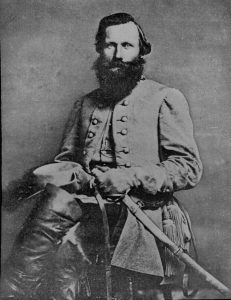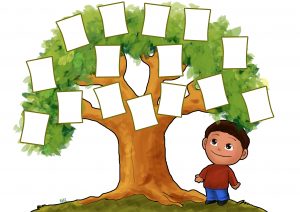 Suzie Kolber created Family Tree Templates to be the complete online resource for “do it yourself” genealogy projects. The site offers the largest offering of free printable blank family tree charts online. The site is a not for profit website dedicated to offering free resources for those that are trying to trace their family history.
Suzie Kolber created Family Tree Templates to be the complete online resource for “do it yourself” genealogy projects. The site offers the largest offering of free printable blank family tree charts online. The site is a not for profit website dedicated to offering free resources for those that are trying to trace their family history.
Tracing your family’s roots, even just a few generations back, can be a challenging experience. That being said, it’s definitely worth the effort – a family tree can profoundly impact your child’s life for years to come. Here are three reasons to create a family tree for your kids:
- It Gives Kids an Interest in World History
For a lot of kids, history is just a boring subject at school. It’s a list of facts about things that happened a long time ago, and kids are all about now and the future. However, when you study your own family history, it helps put things in perspective for your children.
Perhaps you have a great-great-great-grandfather who fought in the Civil War or a great-great-uncle who was a soldier in World War I. Suddenly, these aren’t just stories about people who are long dead. They are stories about your own flesh and blood. The soldiers who marched through intense heat and freezing cold aren’t strangers; they’re family. Learning about American or world history is a lot more fun if you’re involved in some way – and knowing your family tree can help bring history to life.
- It Gives Kids an Interest in Their Own Background
When kids learn about their own family tree, it helps them understand more about who they are. They can see that their red hair and freckles go all the way back to great-great-grandmother Bonnie. Or perhaps your child is the only short person in the family – but so was great-great-great-grandmother Alice. Now they’re no longer alone.
Learning about their family history can help children develop a better sense of who they are and why they look and act the way they do. It also enhances their feeling of stability and security as they see they are part of something bigger than themselves.
- It Helps Them Remember People Who are Important to the Family
As children grow up, family members pass away. They may forget what great-aunt Anna looks like or how grandfather Bill laughed. While you can tell stories about family members who died when the kids were young or even before they were born, these stories become more meaningful if they can be placed in correct association.
For example, say your grandfather was one of eight children. Your child may only know or remember two or three of them. Without a family tree to help them keep track of who was who, other people’s names lose their meaning and place over time. With a family tree, when Grandpa talks about Uncle Phil, your kids will understand exactly who he means and pay more attention to those stories. Instead of just words, they will be able to imagine their granddad as a boy, sitting on Uncle Phil’s lap and listening to his funny jokes.
You don’t have to create an extravagant or complicated family tree for it to be of value to the kids. A simple diagram will work wonders to help them make the right connections. However, the more information you can add (including photos!) will help them remember who this person was and why they are part of the family.




4 Responses
Thank you for explaining how a family tree can help to give children interest in their background and helps them to understand who they are. My children have a very interesting background as half of their family is from Mexico and I want to help them to understand that background better to understand themselves better. I will look into getting an ancestry chart for my family.
That’s great – hope they enjoy it!
I loved how you mentioned that it can help them with understanding more about who they are! Recently, I realized that I don’t know much about my ancestors or family history, and I was wondering if it would be a beneficial thing to look into. I really appreciate you helping me learn more about the benefits of a family tree for your kids! I’ll have to look into finding a professional that can help me with learning more about my history.
Good luck with your research, Kate! It’s definitely a rewarding experience.